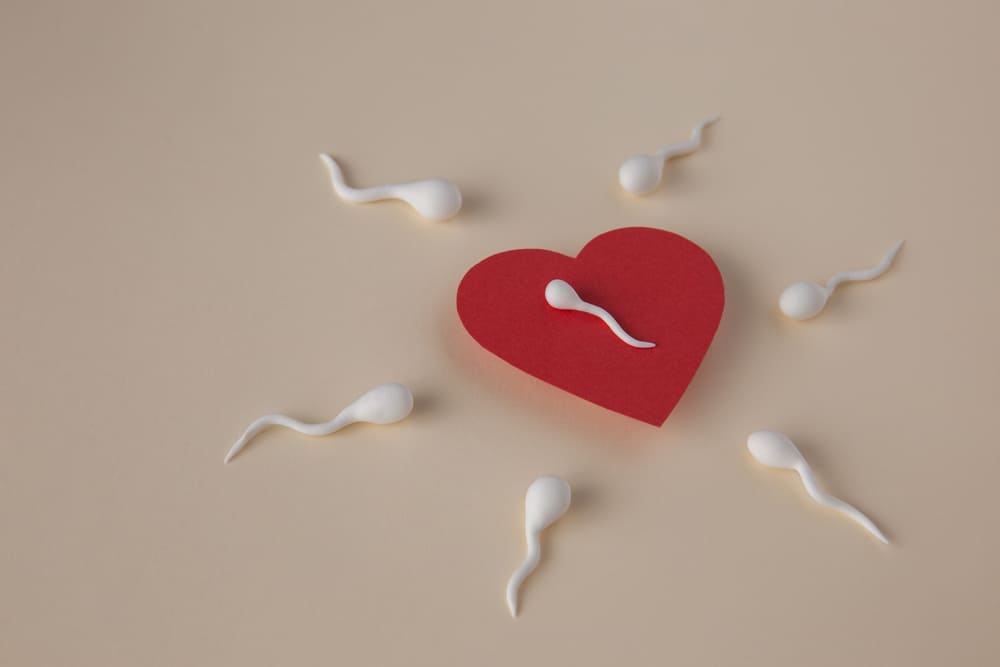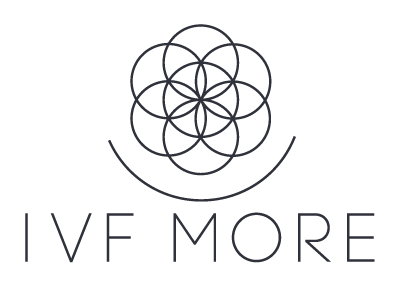Egg Restoration: A Superior Alternative to Egg Donation
June 2025

On the path to motherhood, many women face the challenge of low ovarian reserve or compromised egg quality. Until recently, the most common solution was egg donation. However, thanks to advances in regenerative medicine, there’s now a hopeful alternative: ovarian restoration. At IVF MORE®, this innovation allows many women to avoid using donor eggs and achieve a pregnancy using their own genetic material.
What is Egg Donation?
Egg donation is an assisted reproductive treatment in which a young woman, known as the donor, undergoes ovarian stimulation and egg retrieval. These eggs are then fertilized and transferred to the recipient’s uterus, where the pregnancy is carried. This process is typically recommended for women with very low ovarian reserve, premature menopause, or genetic conditions.
Donor selection involves rigorous medical, psychological, and genetic screening. Although it is a safe and effective option, many women wish to avoid it, as it means giving up their own genetic contribution to the reproductive process.
Understanding the Egg Donation Process
For many women navigating infertility, female egg donation has historically been a trusted option. While it may not involve a genetic link between the mother and child, the process itself has helped thousands of families grow. Examining how the egg donation process works and the people who make it possible is essential.
How the Egg Donation Cycle Works
The egg donation process begins with careful coordination between the clinic, the donor, and the egg recipients. For women with severely diminished ovarian function or genetic concerns, this path has provided a reliable solution to building a family.
The process begins when a woman agrees to become an egg donor. From there, she enters the first phase of the egg donation cycle, which includes multiple screenings, hormone therapy, and timed monitoring.
Throughout this cycle, the donor receives fertility medications to stimulate the ovaries and encourage the development of multiple mature eggs. Unlike the natural cycle where a single egg matures, the use of fertility medications allows for the retrieval of several eggs at once — significantly increasing the odds of fertilization and eventual pregnancy.
The cycle typically takes about two to three weeks, during which the donor attends regular appointments for bloodwork and ultrasounds to track follicle growth.
What Happens During the Procedure
Once the follicles are ready, the donor returns for the egg retrieval procedure. This is a short outpatient process performed under sedation and guided by ultrasound. A physician gently aspirates the eggs from the ovaries using a fine needle, and the procedure usually takes less than 30 minutes.
After the eggs are retrieved, they’re either fertilized immediately with sperm in an IVF lab or frozen for future use, depending on the agreement between the donor and the egg bank or recipient. If fertilized right away, the resulting embryos are cultured and then transferred to the recipient’s uterus.
This part of the journey is hopeful and delicate for egg recipients. They typically undergo hormone treatments to prepare the uterus for embryo implantation. Once everything is aligned, one or more embryos are transferred, and the pregnancy process begins, which is supported by close monitoring and care.
Role of the Egg Bank
Donor eggs are often obtained from an egg bank. This system allows clinics and egg recipients access a broader selection of donor profiles. Eggs can be frozen and stored for future use, meaning timing and logistics are less of a concern.
Egg banks also play an important role in matching donor characteristics with recipient preferences. Whether the recipient seeks physical similarities, specific ethnic backgrounds, or academic achievements, egg banks streamline the process to create the best match.
While this system has made egg donation more efficient, it also highlights the growing demand for donor eggs.
Who Becomes an Egg Donor and Why?
Behind every successful egg donation is a generous individual who gives someone else the chance to become a parent. But egg donors aren’t just names on a chart. They’re real women with stories, motivations, and dreams. Understanding who can become an egg donor, what the process requires, and why women donate helps shed light on this deeply personal decision’s practical and emotional sides.
Egg Donor Requirements and Screening
Due to the sensitive nature of the process and the health risks involved, donors must go through a comprehensive screening process.
The screening process includes a full medical evaluation, a psychological assessment, genetic testing, and a thorough review of personal and family health history. Clinics look for candidates between the ages of 21 and 32 who are in excellent physical and mental health, have a healthy BMI, and are non-smokers.
In Mexico and the United States, these guidelines are closely monitored by fertility clinics and professional organizations to maintain ethical and medical standards. Donors are also educated on the physical and emotional aspects of the process so they can make an informed decision before participating.
Once a woman passes the screening process and is approved as a donor candidate, she may be selected by an egg recipient or matched through an egg bank. From there, the donation cycle is carefully coordinated to align with the recipient’s treatment plan.
What is Egg Restoration and How Does It Work?
Ovarian restoration is an advanced technique that uses regenerative medicine to recover the function and quality of a woman’s own eggs. At IVF MORE®, this procedure is based on an exclusive protocol that includes:
- Metabolic diagnosis of the eggs.
- Infusion of energetic and biochemical factors derived from the patient’s own cells.
- Embryo culture in a magnetic field environment to improve cell division.
- Fertilization via PICSI to select higher-quality sperm.
This combination of technologies is designed to rejuvenate eggs and increase the success rate of in vitro fertilization (IVF), even in women with complex diagnoses.
Why Egg Restoration is a Game-Changer for Fertility
Ovarian restoration completely changes the outlook for women who once saw egg donation as their only option. This treatment allows them to:
- Preserve their own genetic material.
- Choose a safer, less invasive alternative to egg donation.
- Optimize their body’s natural resources through regenerative therapies.
Unlike donor egg use, where the patient receives an embryo created with another woman’s egg, ovarian restoration enables the reproductive process to take place using the patient’s own eggs—restored with cutting-edge science.
Egg Donation vs. Egg Restoration: Which is Right for You?
Every case is unique, and the best option depends on your individual diagnosis, medical history, and personal preferences. Egg donation may be the most suitable choice when there are no available eggs or there’s a high risk of genetic disease.
However, for many women who still have some eggs (even if low quality), ovarian restoration is a promising path to explore. This technique offers a second chance to get pregnant using their own genetic material.
Who Can Benefit from Egg Restoration?
Ovarian restoration is especially beneficial for:
- Women with low ovarian reserve.
- Patients with polycystic ovary syndrome (PCOS).
- Women with endometriosis affecting egg quality.
- Patients who’ve experienced failed IVF treatments.
- Young women with complex diagnoses looking to preserve their fertility.
In all these cases, the treatment helps improve the biological conditions needed to achieve successful fertilization and a viable pregnancy.Ethical and Emotional Considerations in Egg Donation and Restoration
When it comes to fertility treatments, science often gets the spotlight, but the emotional journey matters just as much. The process can stir complex feelings, raise ethical questions, and create emotional highs and lows that are hard to put into words for both egg donors and egg recipients.
The Emotional Weight of Using Donor Eggs
While egg donation has opened the door to parenthood for many, the emotional journey isn’t always easy, especially for women who had hoped to get pregnant with their eggs. The idea of raising a child without a genetic connection can stir complex feelings, from grief to guilt to uncertainty about the future.
Some egg recipients worry about how they’ll bond with the baby or what they’ll say when the child is old enough to ask questions. Others find comfort and gratitude in the opportunity, focusing on the fact that love, not biology, defines a family.
Why Egg Restoration Feels More Personal
Egg restoration offers a radically different emotional experience. For women who once thought donor eggs were their only option, this breakthrough procedure reignites hope.
Being able to get pregnant using their rejuvenated eggs provides a biological connection and a powerful emotional one. It validates their role in the reproductive process in a way that feels complete and personal.
Egg restoration also helps women feel more in control of their fertility journey. Instead of relying on donor eggs or going through the emotional complexities of selecting a donor, they can turn inward — tapping into their body’s natural resources and scientific innovation.
How IVF MORE’s Exclusive Technique Enhances Egg Quality
IVF MORE® has developed a unique protocol that combines:
- Cellular energy diagnosis through ATP analysis.
- Cytoplasmic restoration of the egg with factors extracted from the patient’s own follicular cells.
- Advanced fertilization using physiological sperm selection (PICSI).
- Embryo culture in a magnetic field environment that enhances cell division.
This comprehensive approach has shown a reduction in abnormal embryo (aneuploid) rates and an increase in the chances of achieving a successful pregnancy without using donor eggs.
Start Your Egg Restoration Journey with IVF MORE®
If you’ve received a difficult diagnosis and believed egg donation was your only option, IVF MORE® offers a new possibility. Our team of specialists provides a thorough evaluation to determine if you’re a candidate for ovarian restoration, and we support you at every step of the journey.
Thanks to regenerative medicine, new doors are opening to motherhood—with your own eggs. If you’d like to learn more, get in touch. We’re here to help you fulfill your dream of having a baby with the most precious part of you: your own genetics.
